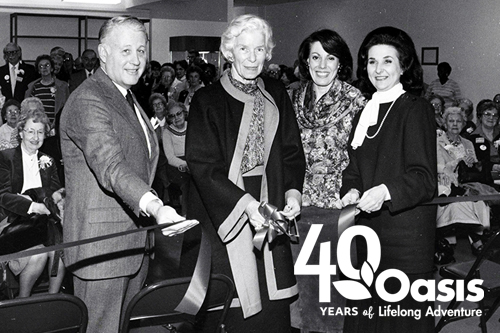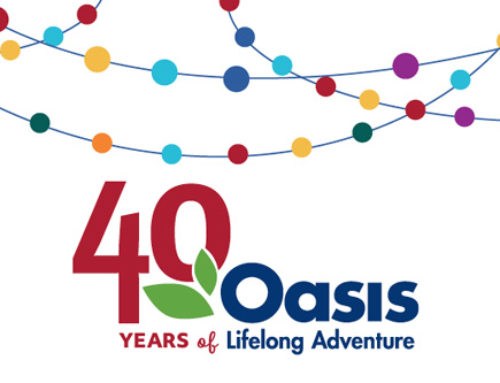Join us for a free virtual presentation with Oasis founder Marylen Mann to discuss the past, present, and future of Oasis and how its mission revolutionized society’s outlook of older adulthood.
We Can Do Better for Older Adults:
The 40-Year History of Oasis
Anyone who knows and loves an older adult can relate to the Oasis mission. Chances are, whether it be a parent, grandparent, neighbor, or friend—an aging adult in your life has benefitted from Oasis, if not directly, through influence on planners of community programs, makers of government policy, and the general public’s ideological beliefs. The plans Oasis initiated were unheard of forty years ago. At the time of its inception, little effort was put into creating programs geared toward maintaining the livelihood of older adults and appreciating them as still-useful members of a community.
Join us for an in-depth panel discussion of how Oasis transformed our culture’s philosophy of aging adults’ (undervalued) place in society. What began with a few visits to senior centers—observing older adults sitting idly around the room, working on rudimentary crafts, and playing bingo—ignited an initiative in Oasis founder and St. Louis native Marylen Mann. After the tours that day, Marylen remarked, “ We can do better for older adults. ” With that small grant, a starter program transformed into a national nonprofit organization that would revolutionize our concept of successful aging—changing the course of how Americans view and value an older population. Forty years later, through Oasis’ national presence, post-retirement adults retain a sense of purpose and worth and remain active contributors to society while expanding their knowledge beyond academic years in personal interests through enlightening learning classes.
This panel discussion will be led by Oasis founder and inaugural president Marylen Mann, former president Marcia Kerz, and current president Paul Weiss. Moderated by Ida Early of Washington University, we will cover the history of aging adults’ undervalued place in society and how Oasis pioneered the path to change that.



Leave A Comment
You must be logged in to post a comment.